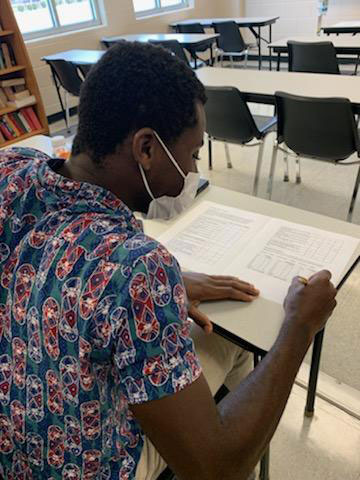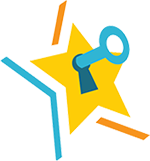Polytech Adult Education in Kent County Delaware is using the Transition Integration Framework (TIF) to balance academic content with workplace and essential skill development. Their primary goal is to integrate digital literacy, contextualize employability skill building, and develop writing skills in a way that is meaningful and relevant to students. They find that the TIF models an excellent integrated and contextualized teaching approach, and provides inspiration for a variety of activities and lesson plans.

The co-teachers reviewed the TIF and chose to focus on Effective Communication, Critical Thinking, Self-Management, and Future Pathways. The TIF includes examples of each skill at three different levels – beginner, intermediate and advanced, enabling the teachers to differentiate between the classes, and even within a multi-level class. There are also suggested digital literacy applications and skill building suggestions for each skill.
For example, the ESOL class used cell phones to download apps and discussed appropriate cell phone usage during the lesson on Effective Communication, (“students will be able to discern appropriate use of technology in various settings (community, work and school)”). This was important to the teacher and her students, who knew that using phones for learning and work was a skill students would need to hone.
In the Pre-GED, students practiced formal and informal writing and speaking styles (Effective Communication), and later explored career options and self-awareness (Future Pathways). Students completed a learning styles assessment, and then visited My MN Careers to explore career pathway options.
One student shared that the increased self-awareness she gained from the learning styles assessment made her “rethink how she blamed others for her difficulty learning in the past.” After exploring careers using the “Find a Career tool” on MyMNCareers another student revealed that she never knew she was interested in business before, and was now considering additional career options.
Overall, Polytech practitioners found the TIF a welcome source of inspiration and guidance on how to integrate employability, personal and digital literacy skills with other academic goals. Additionally, the TIF lends itself well to integration with other resources, like MN Careers (noted above) Skills to Pay the Bills, and Northstar Digital Literacy because both offered complimentary content and skill building. The teachers used this combination of tools to develop an integrated and contextualized curriculum to meet the learning needs and interests of their students.
“Using the TIF allowed us to combine digital and employability skill building with our academic content. It was a great jumping off point for seeing how to integrate technology, employability and writing skills simultaneously”. (Sherry Antonetti, lead teacher)
